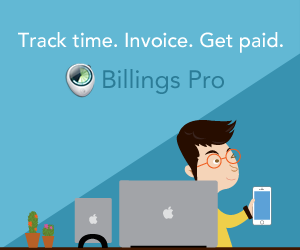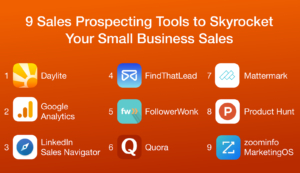Finding that sweet spot to price your services for your small business can be tricky. On one hand, you want to be competitive so you can attract new clients and keep the ones you have from going somewhere else. But on the other hand, you want to charge enough that you can make a living and grow your business. You also don’t want people to come to you because you’re the “cheaper” option. Your clients should respect your work and come to you because they know you’re the best option for them. Here are some tips on setting prices for your small business.
Get over your fear of asking for money
Some people have a difficult time asking clients for money when they’re just starting out. After all, a lot of the time your first clients are your friends and family. Or it’s your first “real” client so you feel like you shouldn’t be charging as much. If you want to be able to call what you do a business, you need to get over your fear of asking for money. Right now. Look in the mirror and tell yourself that the services you provide add value and therefore are worth cold-hard cash. If your friends and family want you to be successful, they’ll want to help you out by respecting what you do a professional.
Calculate your costs
Before you start plucking numbers out of thin air or looking at what other people are charging, first figure out how much you need to make in order to stay in business. What is your overhead? If your prices are fixed, how much time on average will each type of service take you? If you’re not sure how to go about this, How Do I Calculate Overhead Costs? from the Small Business Chron.
Research your competition
Take a look at what else is out there. There are probably a lot of options and different price points. Look at as many competitors as you can and keep track of options from the very lowest up to the highest. Then figure out where you fit in. What value does each option provide? What are the differentiating factors for the lowest price to the highest? What’s the quality of work and/or service compared to what you offer? What is the target marketing for your competitors vs who you want to attract as your clientele?
Understand brand loyalty vs price loyalty
You may think that by charging less than everyone else you’ll get more clients because, well, why would anyone want to pay more? Sure, you may get some more people coming to you because you’re less expensive. But are these the right people you want to attract? In episode 463 of MacBreak Weekly, It’s A Company Car, guest Rene Ritchie from iMore.com explains the problem with attracting customers based on price and how it’s not a sustainable model.
“Sometimes you choose to differentiate based on price and then you lower prices. We saw this in Netbooks and PCs for years. And you start to compete on price. And there’s no loyalty to brand based on price – your loyalty is to the price point…If you’re trying to get the people who will be buying based on lowest price, if your competitor slashes their price point further, people will just go and buy that and it’s not sustainable.” – Rene Ritchie, iMore.com
While he is referring to companies charging less for Android phones, the concept still applies to selling your services. If the customers you’re attracting are coming to you based on price, there’s a good chance they’ll take their business elsewhere when they see someone else offering a better price. Not to mention, these will be the type of customers that go over every invoice with a fine-tooth comb and want to negotiate prices at every chance. If you want loyal customers, make sure you’re adding value and respect yourself enough to charge a fair amount for that work.
Remember, people expect to pay more for “experts”
When a friend recommends someone and says “you have to go to them, they’re the best”, are you really going to hesitate over a slight price difference between this person who is “the best” and a competitor? No, because people expect to pay more for the best. So be the best in what you do. Be specialized and offer great customer service. These are things that add value for your customers and things that they are willing to pay more for. In a case study with Neil Tyra of The Tyra Law Firm, he explains that people today have more choices than ever so to stand out, you need to be specialized and/or offer great customer service.
“You have to be able to distinguish yourself in some way to attract clients. Either you do so by the nature of the services that you offer, or the quality with which you offer that service. Ideally, it would be both. You have the practice area of service that is rather narrow and you deliver high quality service within that practice area.” – Neil Tyra, The Tyra Law Firm
Instead of being known as the cheapest, be known for being the best. When you’re specialized in your area and provide excellent customer service, people will expect to pay you more. And they’ll be happy to pay you more for that five-star service. Educate your leads and customers on why they should pay you more. Make your differentiating factors the value that you add, not the price.
Evaluate and re-evaluate your prices
Pricing isn’t something you set and forget. Ask your customers how they feel about your prices whether they think it’s fair, too expensive, or that they’re getting the better deal than you. Keep an open mind. Not everyone will answer the same. Find a balance between what the majority of your customers are willing to pay, and where they think is fair. It’s also good to follow up with people you’ve lost out on business and find out if price was a factor. If this happens often, this is an indicator that you may want to consider adjusting your prices, creating different price packages, or further narrowing your target market.
Keep in mind that you can still raise your prices. As you expand and you get better at what you do, people should expect your prices to increase and match those changes. Maybe it’s that you are faster or provide better customer service. Maybe it’s inflation. Whatever the reasons, be sure to educate your customers on why your prices are changing and what additional value they will be getting in return. If you’re at the point where it’s time to adjust your price read 10 Ways to Raise your Prices Without Losing Customers from Inc.




